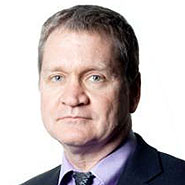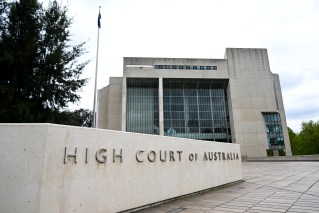ACCC releases disturbing report into reach of Facebook and Google


Facebook CEO Mark Zuckerberg was grilled earlier this year by European MPs about Facebook's activities. Photo: AAP
It’s the question most online users ponder for a little while … before clicking on the next flashing light or following their next train of thought.
How much data do Google and Facebook have on me?
Well, staffers at the Australian Competition and Consumer Commission this year had a scratch around for their personal data, and it’s enough to make the keenest online surfers pause for thought.
Last month, an ACCC staffer downloaded the data attached to their Google family account.
It included 51 products and services accessed through Google between 2011 and 2018, with credit card type and expiry date, and names and addresses from a Google group.
But it also included a recording of every question asked to the family’s Google Assistant by various family members, including children. It included copies of photographs that came from previous devices that had not been transferred to new devices or stored in the cloud.
And the data included location data from a number of different products and services, with every stored photo having attached geodata.
So what about Facebook?
An ACCC staffer downloaded their Facebook data and found user-activity such as posted photos and comments.
But the staffer also found stored data that had been “collected passively”, such as names and phone numbers of their contacts from a mobile device even though they were not their Facebook friends.
Despite having location-tracking turned off on their Facebook settings, the staffer’s data showed IP addresses matched to 53 different locations where they had logged into their Facebook account.
And Facebook had also linked more than 500 advertising interests to the user’s profile and matched the user to contact lists provided by 127 advertisers, including frequent flyer programs and private health insurance companies.
No surprise then, that one of the themes of the ACCC’s preliminary report on digital platforms like Google and Facebook is that they are not “free” services.
The report argues that consumers provide “transactions of significant value” and effectively “pay” digital platforms with their attention, user data and the rights to the things that users post online.
So, the claims that “You Are the Product” and “Data is the New Oil” may be somewhat exaggerated, but they contain the seeds of truth.
Much of the ACCC report deals with the issues of market power and what it means for consumers and business – in particular the cash-squeezed news media companies who pay to produce content that is shared by the online giants for free.
But the section of the report dealing with privacy is fascinating (in Chapter Five starting on page 164).

Sundar Pichai, chief executive officer of Google. Photo: Getty
For example, a consumer survey conducted for the ACCC found that 60 per cent of internet users indicated that they rarely or never consulted the privacy policies of online sites or apps.
The ACCC is concerned at “clickwrap” agreements that are usually offered to consumers on a take-it-or-leave-it basis. Then there is the “bundling of consents” across different online services, with Google able to combine information from more than 60 different services it provides.
The ACCC argues that many digital platforms’ privacy policies are long, complex, vague and difficult to navigate, while using different descriptions for fundamental concepts such as “personal information” that is likely to cause confusion.
Each digital platform’s privacy policies, excluding additional links to separate web pages, were between 2500 and 4500 words, and would take an average reader between 10 and 20 minutes to read.
But the average time spent by Australian users in 2018 viewing the Google Privacy Policy web page was less than two minutes.
The ACCC found that while consumers are “particularly concerned by location tracking, online tracking for targeted advertising purposes, and third-party data-sharing, these data practices are generally permitted under digital platforms’ privacy policies”.
It wants stronger consumer consent for data collecting by making it “opt-in” with the collection settings initially pre-selected to “off”.
It also wants higher penalties for privacy breaches and rights for individuals to bring action against Facebook and Google.
ACCC chairman Rod Sims revealed the watchdog is investigating five allegations that “certain digital platforms” have breached competition or consumer laws.
Mr Sims said there are many positives from the digital economy, or at least those parts of it that are above the surface.
But the report makes clear there’s a lot happening below the surface.








